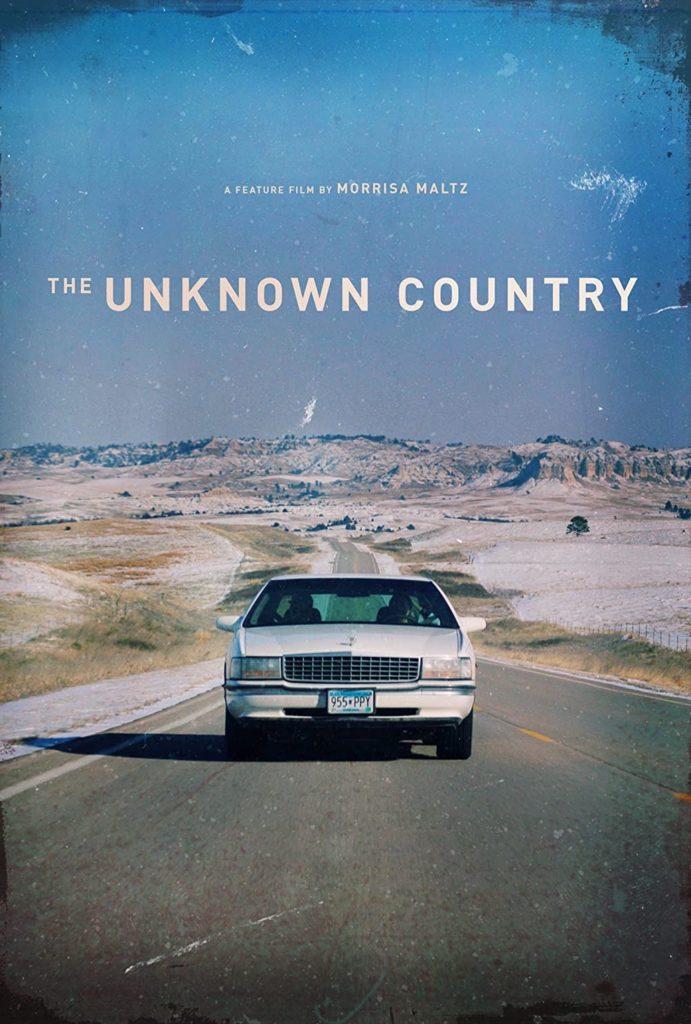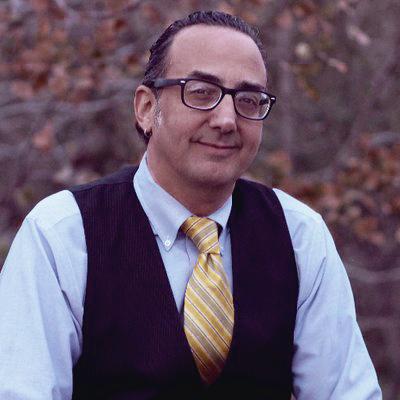An invitation to reunite with her estranged Oglala Lakota family launches a grieving young woman (Lily Gladstone) on an unexpected road trip from the Midwest toward the Texas-Mexico border
I virtually attended this year’s SXSW festival, and because I keep my eyes open for Native communities and Native storylines, SXSW delivered this year by showcasing films which caught my eye and moved my heart.
One of these films was The Unknown Country. During SXSW, I had the wonderful opportunity to speak with Lily Gladstone and Lainey Bearkiller Shangreaux, two of the main characters in the film.
As I described The Unknown Country in my previous review, it is a beautiful film with a thoughtfully profound journey that slowly reveals itself. As a Native American critic, it is also an admittedly terrifying film considering the plight of MMIW.
Of special note, the film currently has a 100% rating on Rotten Tomatoes, my own review included.
See related story: Three beautiful films with Native storylines and themes at SXSW 2022
The plot summary is as follows: An invitation to reunite with her estranged Oglala Lakota family launches a grieving young woman (Lily Gladstone) on an unexpected road trip from the Midwest toward the Texas-Mexico border. In this largely solitary journey with an unknown destination, Tana navigates the complex, post-2016 election social climate, and a natural landscape that is increasingly surreal. Along the way, she bonds with unexpected people that are as much a part of the landscape as the mountains and roads. At times at ease, at times on edge as a woman traveling alone, familiar faces and strangers shape her journey as she grapples with the pain of her recent loss and seeks to understand her place in the world.
Worth noting: With ten current reviews, The Unknown Country currently has a 100% certified Rotten Tomatoes score. My review is included.
https://www.instagram.com/p/CbYAiAAudxP/
As I described in my review to some extent: It didn’t take long for me to become completely immersed in this film which stars Lily Gladstone as Tana, who embarks on a traveling quest across winter highways in an attempt to connect with her family and her past.
Tana (Lily Gladstone) connects with her Oglala Lakota family as well as the amazing characters Jasmine and Lainey Bearkiller Shangreaux, and Devin Shangreaux. I was moved to tears. When Tana connects with Grandpa August, portrayed by Richard Ray Whitman, I literally sobbed with the loss I have experienced in my own Native family.
I spoke with both Lily and Lainey, here is the interview (mildly edited for clarification):
Vincent Schilling: Hello Lainey and Lily. I watched the film and it was incredible, heartfelt and insightful. As much as I loved it, I was still terrified and anxious at times. For example, seeing your character Tana (Lily Gladstone’s character) in a motel by herself, terrified me to be honest, not knowing what might happen.
Lily Gladstone: Right? Close those curtains! (Laughs) It was a joke because we needed the neon in the shot, but anybody in Indian Country that is watching is going to ask, ‘Is this an MMIW story?’ Because we were right in that man camp area, that human trafficking pipeline for MMIW and there’s a Native woman traveling alone but being scoped out. That was my reaction to some early test footage too.
Vincent Schilling: I was loving the interactions between your character and her extended family including Lainey, Jasmine and Devin. It was a beautiful film, to include the connection you had to your own grandmother. It made me think of my grandmother, and how I don’t have anything that belonged to her.
Lily Gladstone: It means a lot to hear that. The nature of the film is, it’s minimal, you know, it’s something you really invest in. And I just love that as a Native viewer, you catch those things, because that was an undercurrent of the grandmother’s story is that she went to Haskell.
I wasn’t aware that my grandma went to Chemawa until I was in middle school, I didn’t really conceptualize what boarding school was about, but it does have this generational impact. That was something that was folded into the character because Tana I always say is Lily adjacent. Tana is what came out of meeting Lainey, out of direction from Marissa, out of finding something that I could connect with and that was something that comes from my own experience.
Our grandparents generation are the ones that had to endure residential schools. And not just our grandparents’ generation. These schools have been around for a long time, since the late 90s. So the generational impact of being a Native person and feeling diaspora in your own land from that era.
So we definitely had moments where we placed that in the film without pointing it too heavily and I’m so happy to hear that somebody who is culturally informed sees those things in the film.
Vincent Schilling: Thank you. So Lainey, one of the funny story moments is where your character describes jumping out of a window and later getting pregnant. I was laughing the whole time.
Lainey Bearkiller Shangreaux: (Laughs) Every time my parents watch that moment they look at me like (groans.) (Group laughter.)
Vincent Schilling: The film had me thinking of my grandmother who left Akwesasne when she began having children. I grew up on Compton Blvd as a brown kid. It took me a while to travel back to my Mohawk reserve in Akwesasne. So what I noticed most about this film was Tana literally facing exclusion in the midst of inclusion. It was a dynamic element of this film.
Lily Gladstone: The structure of Tana being urban came from the woman that you see in the photograph that is the grandmother Isabella LaBlanc. It’s hard to believe she was on a kind of road trip as what looks to be a 19-year-old.
Lainey Bearkiller Shangreaux: Yes, I think she was 19 at the time and she was not even old enough to drink.
Lily Gladstone: Isabella had created a narrative that I understand. In my own experience, I grew up on my own reservation and left it when I was 11. I spent middle school and high school in an urban location. I definitely understood the inclusion and exclusion thing. I found that during those informative years, being away from my rez, were really lonely. Going back after the years of 12 to 16, when you change and you grow up, you don’t look like a little girl anymore and people have a hard time placing you right away. What was so similar is that Tana was coming back to her own family. Urban Natives feel this a lot reconnecting with their family. Your community sees you and knows who you are, even though you yourself maybe feel like an outsider in it.
Laney picked up right away on the theme there. Lainey is off the rez too.
Lainey Bearkiller Shangreaux: Yeah, I grew up there. I have lived there since I was five. So I know what you’re talking about.
Vincent Schilling: Can you talk about the little ball of energy in this film? Your daughter Jasmine?
Lainey Bearkiller Shangreaux: Yeah. She’s always been that way. She’s 10 years old, and she still has that same energy. She’s just happy and we’re actually working on a film about her regarding her coming of age. She’s the same Jazzy that you see in the movie. She’s just always happy.
Lily Gladstone: She took to acting really quick, she’s a natural fit for it. Just like her mom.
Vincent Schilling: One thing that really, really stuck out to me, as a true genuine, sincere moment is when Grandpa August, (portrayed by Richard Whitman) says to Tana that your grandmother was a special person who had her time, and now it’s your time. He was gentle and sincere, and gave you a warm familial embrace. I was just so overwhelmed by that moment. At the same time, I was outraged because my grandmother had been in boarding school, so I was never in my community. I never got that. I was moved, but also furious because I saw what was robbed from me.
Lily Gladstone: Thank you for sharing that. I mean, that’s the goal of knowing any of this. You never know how it’s gonna land. I think Marissa as a filmmaker making all of those things quietly informs the viewer. However, you don’t want to belabor it, and you don’t want to trigger anybody, but if there’s healing that needs to be had there, it’s like a gentle surfacing of those things.
I think a lot of what the story, and this road trip and this embracing of your time — I think collectively, a lot of people can feel that sort of grief. But yeah, the anger that you’re expressing is real. It’s very real.
It’s always nerve wracking to have it out there for people.
Lainey Bearkiller Shangreaux: To be judged? Yes.
Vincent Schiling: Thanks so much for your time Lily and Lainey.
Lily Gladstone: Thank you Vincent
Lainey Bearkiller Shangreaux: Thank you so much.

For more information visit:
Rotten Tomatoes Page: https://www.rottentomatoes.com/m/the_unknown_country
IMDb page: https://www.imdb.com/title/tt12783826/
Lily Gladstone IG: https://www.instagram.com/p/CZfx8yupUEQ/
SXSW page: https://schedule.sxsw.com/2022/films/2053841
Instagram: https://www.instagram.com/theunknowncountryfilm

Vincent Schilling, Akwesasne Mohawk, is the founder and editor of Native Viewpoint. With nearly 20 years of experience as a Native journalist and former member of the White House Press Pool, Vincent works to uplift underrepresented voices in the world of media and beyond. Follow Vincent on YouTube.com/VinceSchilling, on Twitter at @VinceSchilling or on any other of his social media accounts by clicking on any of the icons below.
Support Native Viewpoint a Native multimedia website, by clicking here.